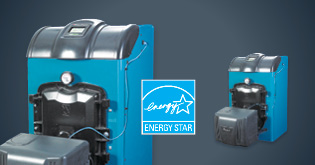
Do you need a backup generator? Get the answers you need to know.

Until it happens and our lives are disrupted by it, we rarely think about the ever-present risk of losing what keeps us safe and comfortable at home—electricity. Storm-related power loss – at any time of year – is more prevalent now than ever before and losing electricity can have bigger consequences than losing WiFi for a few hours. When you lose electricity for a few days or weeks, health issues and property damage can quickly become very real problems. All of this, should make every homeowner ask, “Do I need a backup generator?” It’s an important question that requires quite a few answers and facts you need to know, to make sure that you get the generator you need to keep life running smoothly when you lose electricity.
Important questions every homeowner needs to ask and get answers to when thinking about buying a backup generator.
- Do you live in a larger home? – Large homes are a lot more prone to experiencing burst water pipes during winter storm-related power outages. As the house cools down, the water in the pipes attached to it freezes and expands, causing the pipes to rupture, potentially causing thousands of dollars worth of damage. The only safe, practical way to protect a large home from burst pipes is to restore power—and heat—with a whole house generator.
- What appliances or devices do you need to keep up and running? – Do you work from home and need to keep your office up and running? Does someone in your household sleep with a CPAP machine? Do you have a hot tub that could freeze over if deprived of power? Are there any older people in your home who use a stair lift? If you answered “yes” to any of these questions, these are just a few instances that demonstrate how reliant you are on maintaining a constant stream of power. Don’t wait for an emergency to happen; install a backup generator!
- Do you live in an area that is prone to lots of storms throughout the year? – Severe storms are becoming more frequent and more powerful, developing more rapidly than before. According to NASA, “Already, there is evidence that the winds of some storms may be changing. A study based on more than two decades of satellite altimeter data (measuring sea surface height) showed that hurricanes intensify significantly faster now than they did 25 years ago. Specifically, researchers found that storms attain Category 3 wind speeds nearly nine hours faster than they did in the 1980s. Another satellite-based study found that global wind speeds had increased by “an average of 5 percent over the past two decades.” If you live in an area where hurricanes, tornadoes, severe thunderstorms, or snow or ice storms occur, then we recommend purchasing a backup generator for your home. This will help prevent food spoilage and keep your heating or AC system and hot water tank operating normally.
Picking the right generator: Portable generators vs. standby generators.
If you’ve decided to purchase a generator, it’s important to get the right one for you and your home. Portable generators may cost less but do have
limitations. Primarily, you can expect to go through about 5 gallons of gasoline every 8 hours. They usually are only capable of powering a few appliances and they are not safe for indoor use. Standby, or whole-house, generators, may cost more upfront
but can be used safely and reliably in any weather. They can also power your home’s heating and cooling systems, along with other major appliances. A whole-house generator has a lifespan of over 15 years and switches on automatically as soon
as the power goes off. If you live in a storm-prone area, a whole-house generator is a smart investment.
Important points to consider before purchasing a generator.
Before installing any generator, it’s best to get a consultation to help the company you’re purchasing the standby generator from determining the specific needs
for you and your home. Some important points to clarify during this consultation are:
- How many appliances you will want to run in the event of a power outage
- Determine the location of your whole-house or standby generator
- The type of fuel you want to use to run your generator – natural gas, diesel, or liquefied petroleum.
Keep life running smoothly and protect your home and family with a standby generator.
Having a generator helps prevent food spoilage, house fires, CO2 poisoning, and uncomfortable cold or heat. It can also help protect your property
and appliances from potentially costly damages. These are just a few major reasons why every homeowner should consider getting a standby generator. Start planning your generator consultation and give us a call today.



.jpg)
.jpg?sfvrsn=38eb02bb_5)